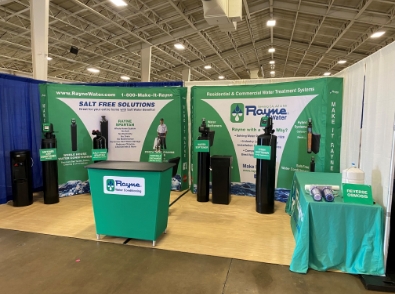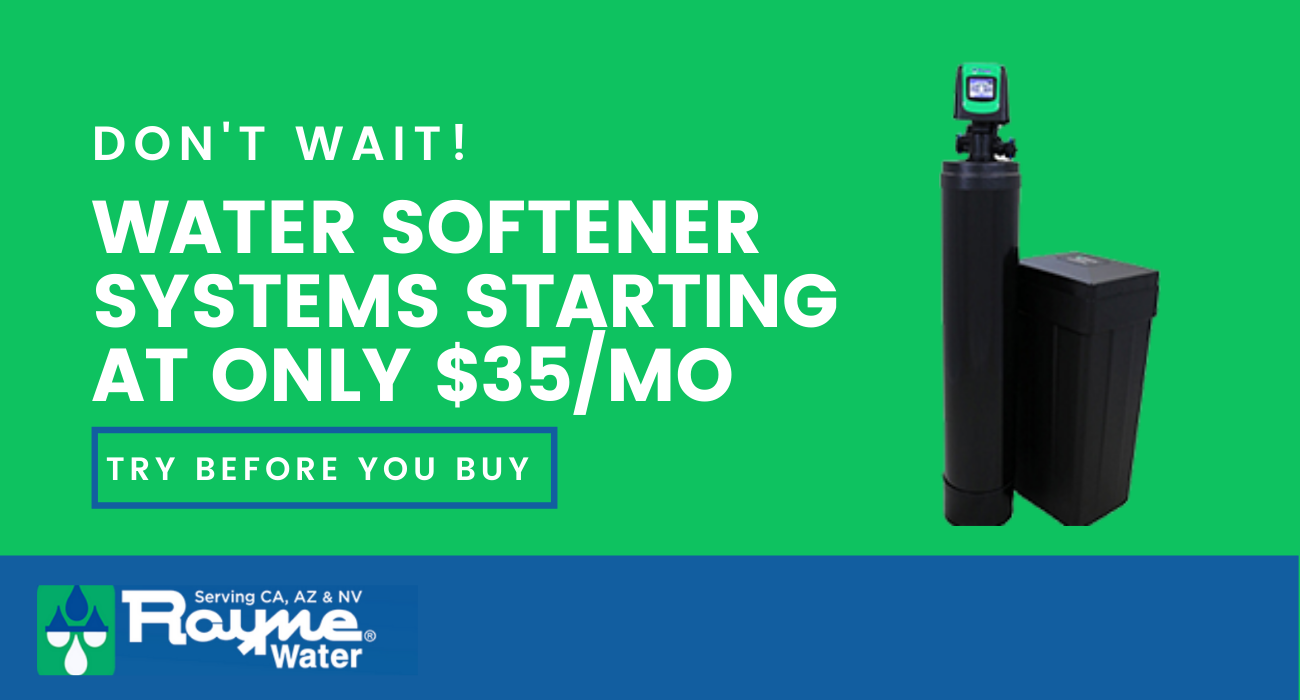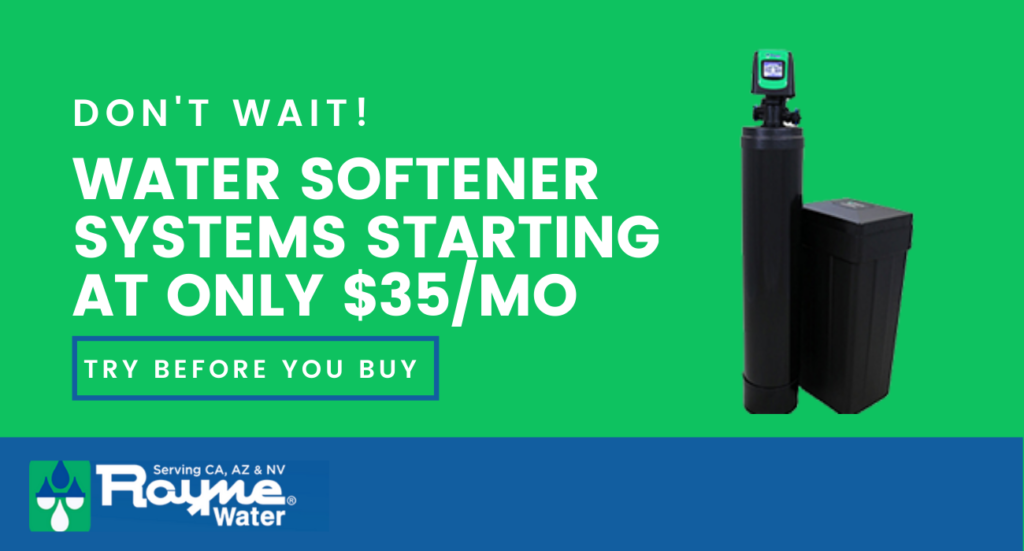If you’ve ever noticed chalky white residue on your faucets, spotty dishes after a dishwasher cycle, or dry, itchy skin after a shower, your water might be hard.
Most of us use city or well water without thinking much about what’s in it. But when your water is filled with minerals like calcium and magnesium, it can cause problems around your home.
A water softener helps by removing or neutralizing those hardness minerals before they reach your taps. The result is cleaner dishes, softer laundry, better-tasting water, and plumbing that stays in great shape.
In this guide, we’ll help you find the best water softener for your home. We’ll explore different system types, key features, and tips for choosing the right setup based on your water quality and household needs.
Types of Water
Systems Explained
Water S systems come in a few different types, each using a unique technology to combat hard water.
The right choice depends on your water hardness level, household size, and preferences regarding salt or maintenance. Here’s a quick comparison of the main softener systems:
| Softener Type | Removes Hardness? | Pros | Cons |
| Salt-Based Softener | Yes – via ion exchange | Most effective at eliminating scale; handles very hard water; proven reliable | Requires salt refills and periodic regeneration; needs a drain and electricity; adds slight sodium to water |
| Salt-Free Conditioner | No – conditions minerals (no removal) | No salt or electricity needed; zero wastewater; low maintenance | Doesn’t soften in traditional sense (minerals remain); less effective on very high hardness levels |
| Dual-Tank Softener | Yes – ion exchange (twin tanks) | Continuous soft water supply (one tank always online); ideal for large homes or heavy water usage | Higher upfront cost; larger footprint for two tanks |
| Magnetic/Electronic | No – alters mineral behavior (no removal) | Easiest installation (clamps onto pipe); no chemicals or salt | Mixed results – only reduces scaling, not true softening; may be insufficient for high hardness |
Let’s break down each type in more detail and explore which might be the best water softener for your home.
Salt-Based Water Softeners
Salt-based water softeners are the most common solution for hard water. According to the Department of Energy, these softeners use ion exchange to replace calcium and magnesium with sodium or potassium, resulting in genuinely soft water that prevents scale buildup and improves soap performance.
These systems are ideal for moderate to very hard water. They’re highly effective but require regular regeneration using a saltwater rinse to flush out collected minerals.
This process uses some water and salt, and you’ll need to refill the brine tank about once a month.
Despite the upkeep, salt-based softeners are widely considered the best whole house water softener option for long-term protection and comfort.
Essential Series Softener
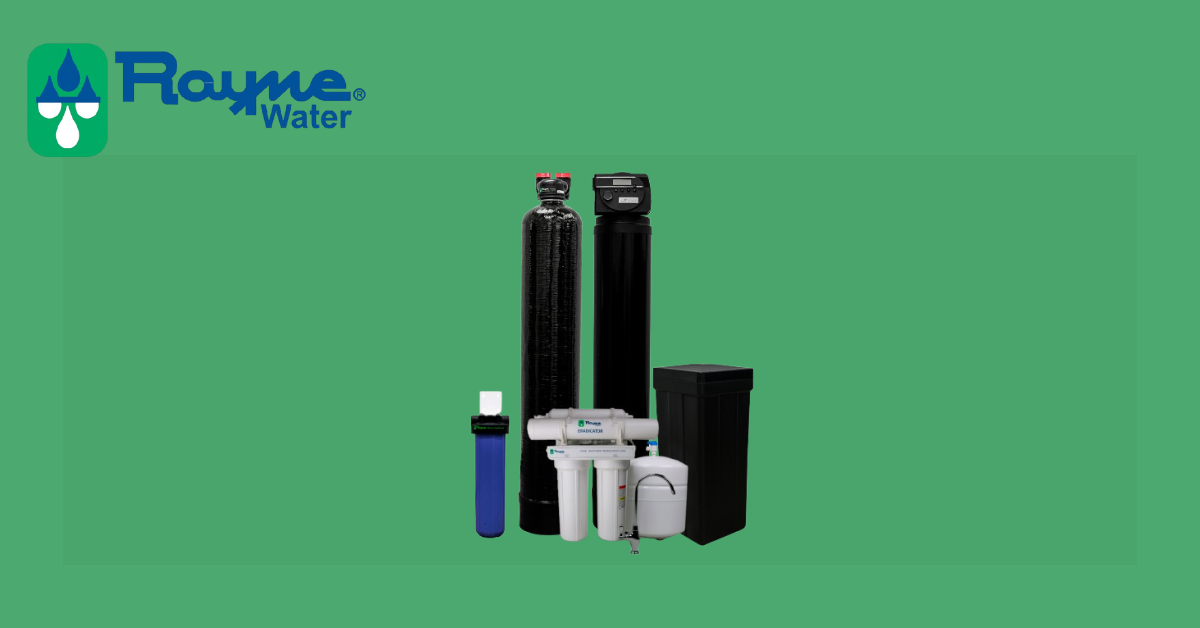
The Essential Series is our reliable, efficient salt-based system designed for small to medium homes. It’s a workhorse system that uses ion exchange to deliver fully softened water throughout your house without breaking the bank.
- Best For: Families wanting soft, scale-free water at an affordable price. It’s ideal as an entry-level softener for moderate hardness levels and average water usage.
- Pros: Budget-friendly price point; excellent scale removal and soap performance; compact one-tank design fits in tight spaces.
- Cons: Requires regular salt refills and periodic maintenance (like any salt-based unit).
Salt-Free Water Conditioners
Salt-free water softeners, or water conditioners, offer an eco-friendly alternative to traditional systems.
Instead of removing minerals, they use technologies like Template Assisted Crystallization (TAC) to convert hardness minerals into crystal form, reducing their ability to form scale.
These systems require no salt, no electricity, and minimal maintenance. They’re ideal for homes with mild to moderate hardness or for those seeking a greener solution.
However, they don’t reduce actual hardness levels and may be less effective in very hard water. Still, they help protect pipes and appliances while reducing environmental impact.
Salt-Free Conditioner Pro
Salt-Free Conditioner Pro offers a zero-salt, zero-waste way to reduce hard water problems. Instead of removing minerals, it uses advanced media to neutralize them and help prevent scale on pipes and fixtures.
- Best For: Eco-conscious households with mildly hard water (under 10 GPG) or those avoiding salt and chemicals. Also suitable for low-sodium diets.
- Pros: No salt, no regeneration, no water waste, and very low maintenance. Keeps healthy minerals in the water.
- Cons: Doesn’t fully soften water. You may still feel slight hardness and reduced lather. Not recommended for very hard water.
Dual-Tank Water Softeners
Dual-tank softeners are salt-based systems with two resin tanks instead of one. This allows one tank to soften water while the other regenerates, providing a continuous supply of soft water.
Unlike single-tank models, there is no downtime during regeneration, making them ideal for homes with high water usage.
They are especially useful for large families, homes with multiple bathrooms, or well water systems that require frequent regeneration. Dual-tank systems are also a great option if you want to avoid any interruption in soft water delivery.
The trade-off is a larger footprint and a higher upfront cost. They still use salt but often do so more efficiently by metering water use.
Executive Twin Tank Softener
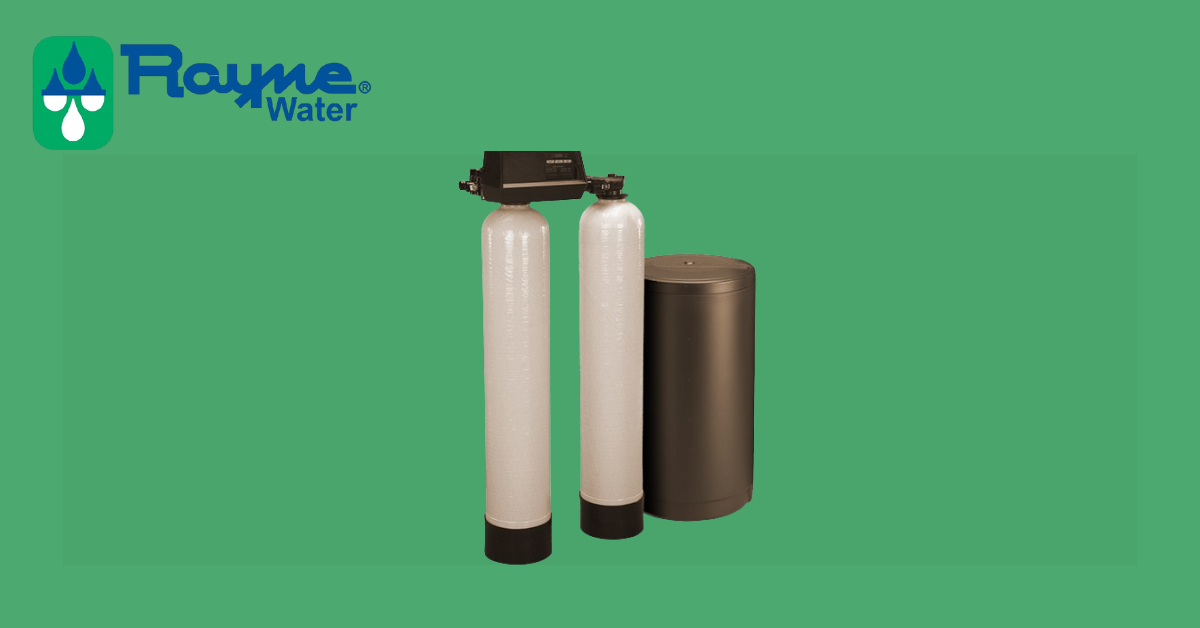
Executive Twin Tank Softener is a high-efficiency system designed for large homes or areas with very hard water. Its dual-tank setup allows one tank to soften water while the other regenerates, ensuring a continuous flow of soft water at all times.
- Best For: Households with high water demand, frequent guests, or irregular water use schedules. Also ideal for well water with high iron or mineral content.
- Pros: No interruption in soft water, high capacity, demand-based regeneration, and consistent water pressure.
- Cons: Larger system that requires more space and has a higher upfront cost. Like all salt-based units, it needs regular salt refills.
Magnetic/Electronic Descalers
Magnetic and electronic water conditioners are simple devices that attach to your pipes and use magnetic or electronic fields to help reduce scale buildup. They don’t remove hardness minerals but aim to keep them suspended, so they are less likely to stick to surfaces.
These systems require no salt, filters, plumbing changes, or maintenance. They are a popular choice for renters or homes where installing a traditional softener isn’t possible.
Results can vary. Some users see slight improvements, while others notice no change. For very hard water, a salt-based or high-quality salt-free system is often the better whole-house water softener.
What to Consider When Choosing the Best Water Softener
So, how do you narrow down the choices and pick the perfect softener for your home’s needs? Keep these key considerations in mind:
1. Test Your Water Hardness
Before choosing a system, it’s important to test your water hardness. You can use a DIY test kit or request a free water test from Rayne Water to measure hardness in grains per gallon (GPG) or ppm.
Water is considered hard above 7 GPG, and anything over 10–15 GPG is very hard. Alternatively, water with more than 180 mg/L of calcium carbonate is considered very hard, according to the USGS.
Knowing your exact number helps you choose the right softener. For mild hardness, a basic system may work. For higher levels, you’ll need a more powerful solution. Skipping this step often leads to undersized or ineffective equipment, so always start with a proper water test
(Hardness tip: If you’re on city water, you can often get the hardness from your utility’s water quality report. But testing is still wise, especially for well water, as levels can vary seasonally or by neighborhood.)
2. Consider Household Size and Water Usage
The size of your home and the number of people using water directly affect what grain capacity softener you need. Smaller households (1–2 people) typically need a 24,000–32,000 grain unit.
Medium homes (3–4 people) often require 32,000–48,000 grains, while larger families (5+ or high usage) may need 64,000 grains or more or even a dual-tank system for continuous soft water.
Consider peak usage too. If multiple showers, laundry, and the dishwasher run at once, you’ll want a softener with a higher flow rate to avoid pressure drops.
Choosing the right size matters. A unit that’s too small may regenerate constantly and fail to keep up. Too large is less of an issue but may cost more upfront. Use your hardness level and daily water use to estimate the best fit, or consult a pro for guidance.
For consistent performance across the home, the best whole house water softener for your home should match both your daily use and peak demand.
(Remember: more bathrooms and fixtures = more potential simultaneous water demand. Even if only two people live in a home with three bathrooms, a softener must handle flows if all showers might be used when guests visit.)
3. Decide Between Salt-Based vs. Salt-Free
Next, decide which softening method you prefer: salt-based ion exchange or salt-free conditioning. Each has its pros and cons, as discussed earlier. Ask yourself a few questions:
- Is eliminating every last bit of hardness and truly softening the water a top priority? If yes, a salt-based softener is your best bet for full effectiveness.
- Are you concerned about adding sodium to your water, or do you live in an area with bans on salt discharge? If so, a salt-free conditioner might be more attractive (or using potassium chloride as an alternative in a salt-based softener).
- How important is low maintenance? Salt-free systems have the edge in convenience since they don’t require regular salt refills or produce wastewater.
If you’re on the fence, consider the actual hardness of your water. For slightly hard water, a salt-free system can often manage scale just fine and you’ll enjoy the simpler upkeep.
But for very hard water (above 15 GPG), a salt-based softener delivers better results; improving soap lather, laundry, and eliminating spots.
In some cases, a hybrid approach works best, using a salt-free conditioner to reduce scale in pipes and a small salt-based unit for full softening where needed.
4. Understand Regeneration Types
If you’re going with a salt-based water softener, it’s worth knowing how it regenerates. This is the process that cleans and recharges the system so it can keep softening your water.
Some models use time-initiated regeneration, which means they run on a set schedule, like every three days at 2 a.m. It works, but it doesn’t always match your actual water use and can waste salt or water.
Others use demand-initiated regeneration, which tracks how much water you’re using and only regenerates when needed. This is usually more efficient and better for homes where water use changes day to day.
Dual-tank systems are the most seamless. One tank softens your water while the other regenerates, so you always have soft water, even during peak use.
Look for terms like metered control or smart regeneration. These features help reduce salt use, save water, and lower your utility bills.
(Tech tip: New WiFi-enabled softeners even let you monitor cycles and salt level via app. While not essential, such features can be handy for busy folks or second homes.)
5. Evaluate Plumbing & Installation Logistics
Installing a water softener means connecting it to your home’s main water line, usually near where water enters the house.
Common spots include the garage, basement, utility closet, or even outside in a weather-safe area. Make sure there’s enough room for the tanks and space for service access.
Most systems include a bypass valve, which lets you shut off the softener for maintenance or run unsoftened water if needed.
Salt-based softeners require a drain line for flushing, along with access to a power outlet for the control valve. Salt-free and magnetic units are more flexible since they usually don’t need a drain or power.
The unit connects to your home’s plumbing, typically using ¾-inch or 1-inch piping. Some homeowners can install it themselves with the right fittings, but complex layouts may require a plumber.
6. Certifications & Safety Ratings
When shopping for a water softener, look for third-party certifications that show the system meets performance and safety standards.
NSF/ANSI Standard 44 is one of the most important. It confirms the system’s grain capacity, efficiency, and material safety. If a softener has this certification, you can trust that it performs as advertised.
The WQA Gold Seal is another trusted mark. It means the softener has passed independent tests for hardness reduction, structural integrity, and overall quality. Some salt-free systems are also certified under WQA’s scale prevention standards.
You may also see NSF/ANSI 61 or 372, which indicate that the system is made with lead-free materials. This is especially important for units connected to your drinking water.
Some softeners also include efficiency ratings, showing how much salt they use per regeneration. In states like California, this can be a requirement.
Common Mistakes to Avoid
Choosing the right water softener is straightforward, but there are a few common mistakes to avoid:
- Skipping the water test: Don’t guess your hardness level. Always test first. Without accurate info, you could choose the wrong system or one that’s too weak to handle your water.
- Undersizing the system: A smaller unit might seem cost-effective, but it will work harder, regenerate too often, and still leave you with hard water. It’s better to size up if you’re unsure.
- Ignoring flow rates: In larger homes, low-capacity softeners can reduce water pressure when multiple taps run. Make sure your softener matches your home’s peak water demand.
- Poor installation planning: Avoid tight spaces or hard-to-reach spots. Always include a bypass valve and secure your drain line properly. A little planning goes a long way.
- Believing marketing hype: Be cautious with “no-salt” or “magnetic” softeners claiming miracle results. Stick with certified systems from trusted brands.
- Forgetting maintenance: Check salt levels monthly and clean the brine tank as needed. A little upkeep keeps your softener working like new.
Learn how to test water at home
Rayne Water Softener Product Lineup
To make your selection easier, here’s a quick snapshot of some popular Rayne Water softening systems and their highlights:
| System Type | Best For | Capacity | Key Features | Link |
| Essential Series | Small to medium homes | 32,000 grains | Affordable, efficient, compact design | [View System] |
| Executive Twin Tank | Large homes / high demand | 158,000+ grains | Dual-tank (no downtime), high flow rate | [View System] |
| Salt-Free Conditioner | Mild hardness areas | N/A (no resin) | TAC media tech, no salt or waste, low maintenance | [View System] |
| Portable Softener | RVs, rentals, mobile use | 8,000–16,000 grains | Compact & mobile, no permanent install needed | [View System] |
(Note: “Capacity” refers to the approximate hardness removal capacity per cycle for salt-based units. Salt-free systems don’t have a grain capacity since they don’t capture minerals.)
Bonus Add-Ons & Combos
Getting a softener is a huge step toward improving your home’s water, but you can amplify the benefits by pairing your softener with additional water treatment systems.
Here are some popular combinations and add-ons to consider:
Water Softener + Filtration Combo
For the best water quality throughout your home, many homeowners choose to pair a water softener with a whole-house filtration system.
The softener removes hardness minerals, while the filter targets chlorine, chloramines, and other chemicals that affect taste, odor, and overall water quality.
This combination works especially well for homes on chlorinated city water. A carbon filter improves the way your water tastes and smells, and the softener prevents scale buildup on pipes and appliances.
You’ll enjoy softer showers, cleaner laundry, and better-tasting water at every tap.
Find out the difference between a water softener vs water filter
UV Filtration Add-On
If you rely on well water or want extra protection against microbes, consider adding a UV filtration system. These systems use ultraviolet light to neutralize bacteria and viruses without altering the taste or adding chemicals.
UV units are placed after your softener and filter so the water is clear enough for effective treatment. They need electricity and an annual bulb replacement, but require little else. While UV does not remove metals or chemicals, it provides valuable peace of mind by improving microbial safety.
Reverse Osmosis for Drinking Water
Even with a whole-house softener and filter, many homeowners install a reverse osmosis (RO) system at the kitchen sink or fridge line. This is because softeners do not remove contaminants like lead, fluoride, arsenic, or nitrates.
RO systems use a specialized membrane to remove over 99 percent of dissolved impurities. They also reduce any sodium added by a softener.
When used together, the softener protects the RO membrane, allowing it to work more efficiently and last longer.
Interactive Tool: Find Your Ideal Softener
Customer Success Stories
Sometimes the best way to decide is to hear from people who have been in your shoes. Here are a few real-life success stories from Rayne Water softener customers, highlighting the impact of installing the right system:
“Looking forward to the benefits of our salt-free system!” – Soroush A.
Soroush chose a salt-free conditioner from Rayne and couldn’t be happier with the service. “Adam came on time, was friendly, knowledgeable, and answered all my questions,” he wrote. The installation went smoothly, and Soroush appreciated the professionalism and care shown throughout the visit. “Thanks again, Adam!”
“The last Rayne system lasted 18 years.” – Paul O.
When it came time to replace his RF1500 system, Paul looked around; but came back to Rayne for the best value. “Adam and Dave did an outstanding job,” he said. “Rayne offered the best deal, and the system they installed nearly two decades ago was reliable from day one.” Paul’s new setup is ready for another long run.
“I felt listened to and supported every step of the way.” – Astrid
Astrid worked with the Rayne team to install both a water softener and reverse osmosis system. She said Donnie helped her understand her options without pressure, while Adam and Drayton handled the install with great care. “I feel comfortable managing the system myself or calling for help if I need it. Day one has already been a great experience!”
Choosing the Best Water Softener
Now that you’ve got a clear picture of your options, choosing the best water softener for your home feels a lot more doable.
Start with a simple water test, then pick a system that fits your household’s needs. Salt-based softeners are great for removing hardness completely, while salt-free conditioners can help reduce scale.
Make sure the size is right, the install is practical, and think about adding filtration or reverse osmosis for extra peace of mind.
Ready for Softer Water? Don’t settle for hard water hassles. Take the first step toward better water by scheduling your free water test with Rayne.
FAQs
What is the best water softener for hard water?
The best water softener for hard water depends on your home’s size and usage. Salt-based systems are often the most effective for full softening and long-term protection against scale buildup.
Is a salt-free conditioner the best home water softener option?
For mild hardness and eco-conscious homes, a salt-free conditioner can be the best home water softener. It reduces scale buildup with little maintenance but doesn’t fully remove hardness minerals like salt-based systems do.
How long does a water softener system last?
With proper maintenance, the best water softener systems can last 10 to 15 years. Choosing a high-quality model with certified performance ensures long-term value and reliable soft water across your entire home.

